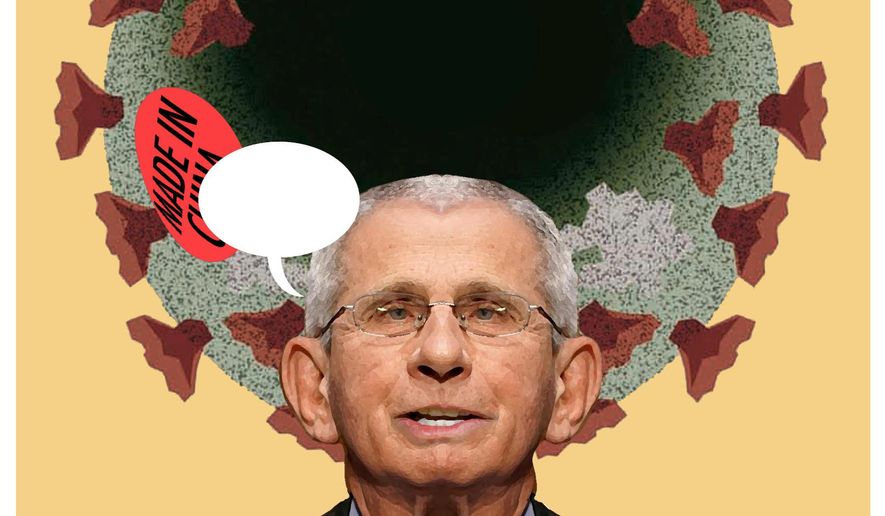OPINION:
In June 2021, a 12-story beachfront condominium in the Miami suburb of Surfside, Florida, collapsed without warning, causing the deaths of 98 people. It made headlines around the world for weeks, because the event was so rare. Mankind has been constructing multi-story buildings for thousands of years — and some are still in use in Rome, even though they were built two millenniums ago. Structural and civil engineers have a great depth of knowledge, accumulated over the eons, as to how to build things that do not fall down.
There are many other areas of human activity where the “science” is much less certain, even though the majority of “experts” might at a given time have a strong belief — which is often proved wrong.
Medical science, having made enormous advances, is still an area where some experts have much to be modest about while others deserve their bows. As in all fields, progress in medicine has been uneven. Highly skilled surgeons routinely do amazing things in repairing and reconstructing parts of the human body, including double-lung transplants and repairing the electrical systems of the heart. I had complimented a surgeon friend on what seemed to me a very difficult task, and his reply was that he was merely an extremely well-trained and experienced plumber. As I thought about his comment, I realized that, in certain ways, what he did was a logical development of the thought process and skills of those engineers who built the Roman aqueducts and water systems (parts of which still work after 20 centuries).
When it comes to understanding viruses, it is obvious that, particularly after the pandemic, much is to be learned. Government health officials like Dr. Anthony Fauci made major mistakes in giving the impression that they knew far more than they did about COVID-19 and the various vaccines and other treatments. The public was subject to endless revisionist history and denial about earlier statements (as if video recordings did not exist) about how effective the vaccines were, how many shots would be needed and at what intervals, and what side effects might occur. All of the doublespeak and mis-forecasts have caused the public to take a jaundiced view of the alleged consensus statements of the medical experts.
Good surgeons normally give patients their best estimates of the probability of various possible outcomes before the surgery. Such information is particularly important for elective or alternative surgeries. Most people can understand the uncertainty and accept the reality with maturity, even if the outcome is less than hoped for.
If Dr. Fauci, Dr. Francis Collins, Dr. Deborah Birx and the others had said to the American people, “We are faced with a new virus about which we know little, and thus will likely be revising our recommendations frequently, as our understanding of the virus and possible treatments evolve,” many of resulting credibility problems would not have occurred. Treating the American people as adults who understand it is a dangerous and uncertain world would have been far better for all involved — than for the “experts” to claim knowledge they did not have.
There has been so much contradictory information about the effectiveness of the vaccines and the boosters, and even masks, that fewer and fewer believe government officials and Big Pharma, many of whom clearly have conflicts of interest.
The costs of lockdowns to schoolchildren, businesses, the economy in general and most importantly, civil liberties were never adequately considered and could justifiably be called criminal. The lockdowns caused a drop in real incomes, causing more economic stress, which led to more health problems and higher death rates. Many politicians made demands that the economy be locked down, upon the advice of medical professionals, without the benefit of a credible cost-benefit analysis of the lockdowns versus alternatives. The lockdown mandates were about government power — not knowledge — leading to absurd regulations where churches had to be shut, but not bars.
The state of Florida had only minimal lockdowns because Gov. Ron DeSantis understood costs and benefits, unlike those politicians running New York with their totalitarian policies — yet Florida had a lower age-adjusted COVID-19 fatality rate than New York. Sweden also had minimal lockdown policies and, like Florida, had fewer deaths per million than some other European countries with onerous lockdowns.
Sadly, those in the economic establishment are often know-nothings. When many of us were warning about the coming inflation, Fed Chairman Jerome Powell and Treasury Secretary Janet Yellen first said it would not occur, then it would be minor, then it would be transitory — despite the fact they had hundreds of economists on their staffs. The result is wages that have been growing at a slower rate than inflation, causing more misery and lower life expectancy.
In the first half of the 20th century, the great theoretical physicists Albert Einstein and Niels Bohr were engaged in a feud about aspects of quantum mechanics that was not settled in their lifetimes. It now appears that Bohr was more nearly correct — but concepts like the “uncertainty principle” and “entanglement” may be beyond the smartest minds among us to fully understand. To paraphrase — a philosopher is one who knows a great deal about very little, and a scientist is one who keeps knowing more and more about less and less until he knows everything about nothing.
• Richard W. Rahn is chairman of the Institute for Global Economic Growth and MCon LLC.




Please read our comment policy before commenting.